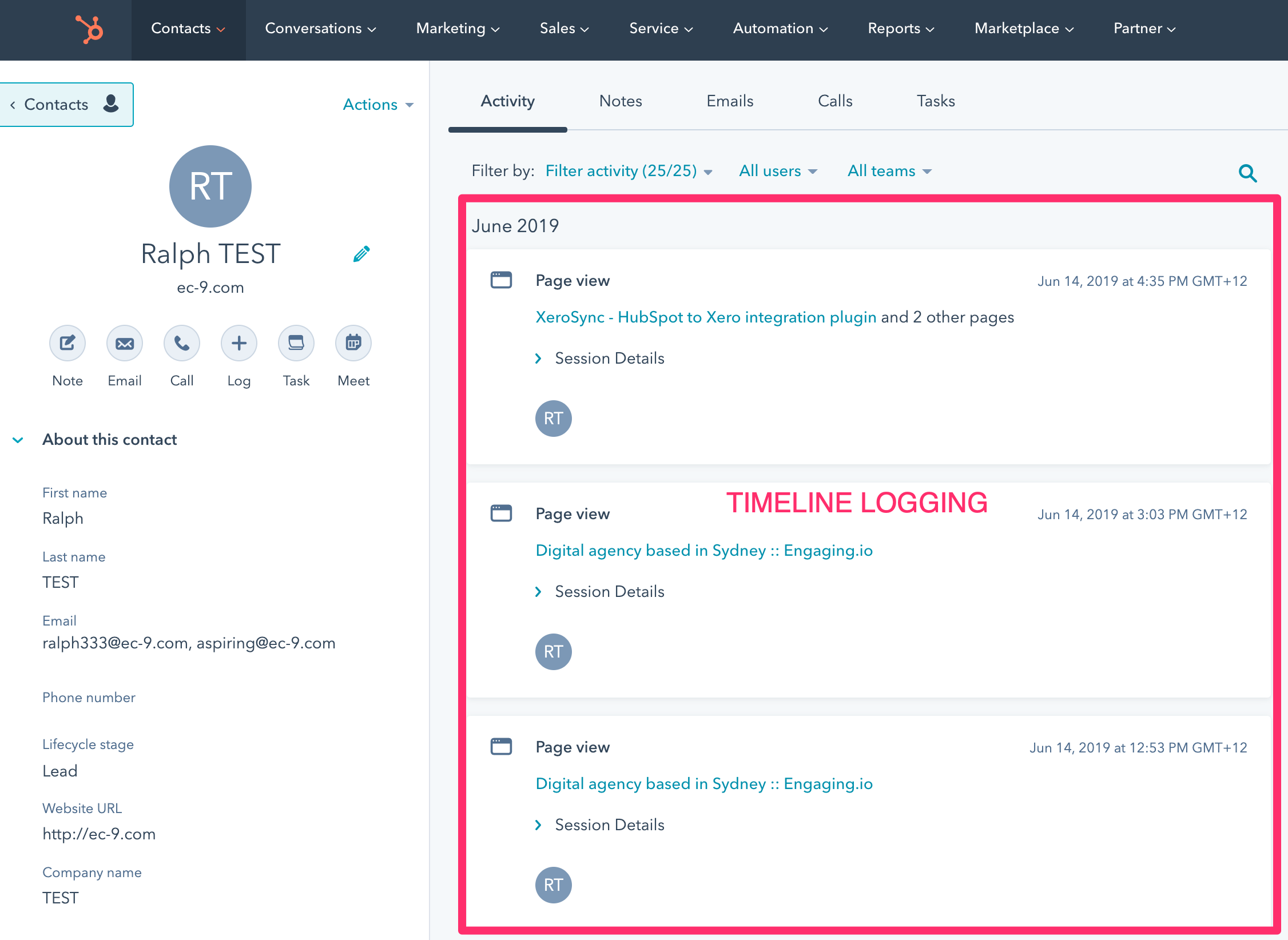The HubSpot timeline is a powerful way to log activities back to your contacts, deals or company records.
It's much more versatile than just updating properties on a contact, as each timeline item logged can contain as much info about the event that took place as possible. This can be great for sales teams as they get full visibility over what happened and when.
Workflow automation
HubSpot timeline events can also be used to trigger workflow automations in HubSpot helping you to further personalise communications to your customers when things happen.
A good example of this with our HubSpot Xero App. When an invoice is raised, payment is made etc this info is pushed into the contacts timeline. This way a thank you email can be sent after it has been received, sales team can see if a payment on their deal has been made which further streamlines their processes and gives them more visibility over what's happening with the account.
Webhooks
Combining the timeline API with webhooks from remote systems can be a very powerful combo. A webhook from other CRMs or systems like shopping carts can send data to HubSpot when it occurs. Eg. A shopping cart order is placed, the order details can then be inserted into the customer's timeline and their lifecycle status can be set to customer. All this data can then be used for future follow up communications or simply visibility for sales teams.
Creating HubSpot timeline events
This is where it gets tricky. You're going to need a developer (or us - get in touch!) as there are quite a few components to creating these via the API. Zapier and other automation platforms can't do this easily as only support the standard HubSpot objects out-of-the-box.
Check out the documentation here however if you're in a codey mood.

